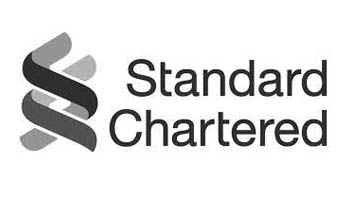In 2008, Kenya debuted Vision 2030, a comprehensive plan to revolutionise and transform the country into a middle-class, highly industrialised and digital economy.
Vision 2030 is aided by President Kenyatta’s Big Four Agenda, which focuses on four major pillars of improvement: protecting food security, increasing manufacturing, ensuring affordable housing and providing universal healthcare for all in order to improve the lives of every Kenyan citizen. Eleven years since its introduction, Kenya is now enjoying the positive results of an economy that is highly innovative, diverse and developed in terms of ICT, making it a hub of investment opportunities in the African continent.
Among its first moves in implementing Vision 2030, Kenya liberalised its economic policy, recognising the legal and political obstacles of the past and working to make transitions easier so that investors and foreign companies could come to the country, invest and send their profits overseas. This liberalisation has greatly enhanced the country’s rating on the ease of doing business index where Kenya soared ahead of the competition, leaping an astounding 56 positions in 2018 and placing it at number 61. In light of this huge achievement, Kenya aims to assume its place among the Top 50 countries most conducive for business in 2020.
John M. Ohaga, Managing Partner of Nairobi-based TripleOKLaw firm, has directly witnessed the significant evolution of Kenya’s legal framework that allows this transition to be possible, and now he feels that all the necessary steps to foster even more economic growth have been put into place. “Kenya is working very hard to improve its investment climate. Our legislative framework, our political situation and our policies have been addressed. Kenya appears very good for investors coming in,” Ohaga states.
As a result of these modifications, Kenya has been chosen by many multinational companies including Google, Microsoft, General Electric and IBM as the main hub for their African operations. Facilitating the presence of these worldwide brands is guaranteed to change the global image of Kenya into a country that is optimal for nurturing business and investment.
In addition to the improvements in legal regulation, the government’s vision seeks to improve the quality, quantity and cost-effectiveness of public infrastructure with the adoption of a public/private partnership framework. This framework will help to push forward the initiative by enabling growth in all sectors. Judith A.M. Nyakawa, Senior Deputy Director at the Public Private Partnerships Unit (PPPU) explains: “Our mission is to promote economic transformation for shared growth through the implementation of prudent economic financial policies at the national and continental level. We are able to mobilise private financing and leverage on effectiveness, efficiency and innovation, which is very common in the private sector.” Entities such as PPPU aid the country in providing continuous support, improving public infrastructure and aiding sectors such as energy, education, healthcare and construction, endeavours which promote existing and incoming businesses even further toward success.
In combination with the favourable investment climate, the mining sector in Kenya has opened the doors for investment opportunity in its discovery of rare earth minerals only a few years ago, which has brought great attention to the country’s wealth of untapped resources. Base Titanium, the first foreign direct investment in Kenya’s mining sector, accounts for 65% of all mineral production in the country. Simon Wall, Acting General Manager and External Affairs Executive of Base Titanium reinforces the reality of these opportunities in the sector: “The mining sector is both huge and small at the same time and Base Titanium has presented an opportunity to Kenya to be used as a marketing tool for advertising and investment in its mining sector as a demonstration that mining is a viable option. Kenya is traditionally an underexplored mining jurisdiction, which means there is a lot of opportunity.” Today, Base Titanium embraces the Big Four Agenda to push the government’s plans further by working to build schools, hospitals, dormitories and dispensaries for the communities in which they are present.
Another main factor that secures Kenya as a hub for investment is its highly skilled workforce, which is considered one of the most educated and innovative in the continent. This labour force is key to sustaining continuous economic growth. Sebastian Mikosz, CEO of Kenya Airways, believes that the secret to the Big Four Agenda and Vision 2030 lies in job creation. Mikosz states: “We will achieve Vision 2030 by continuing to grow the GDP. If people have jobs, those jobs can make careers and people in Kenya will invest in education. My support for the Big Four Agenda is to create more jobs because once you do, all other things will come. More investors will come.”
Furthermore, Kenya Airways is working to accelerate the tourism sector by expanding their networks and as a result, increase their capability to carry more passengers. To achieve this goal, all of the objectives of Kenya must come full circle. Mikosz explains, “In order to increase the number of passengers, we need to increase GDP per capita. This is closely linked to travel. As long as the GDP per capita is not there the market will not grow. It is also linked to the necessary investment in infrastructure.” As a result, the continuous efforts of the legal, mining, transportation and infrastructure sectors all come together to ensure that Kenya has empowered all components of the foundation of success and prosperity for the years to come.
With a newly liberalised economic policy, improvement in public infrastructure, new discoveries of valuable and rare resources, expanded transportation options and a motivated workforce, Kenya has all the tools in place to become Africa’s capital of innovation, opportunity, and investment.





















